Wrinkle Treatment in Cape Town
Search and Compare the Best Clinics and Doctors at the Lowest Prices for Wrinkle Treatment in Cape Town

Find the best clinics for Wrinkle Treatment in Cape Town
With Medijump you can browse 3 facilities offering Wrinkle Treatment procedures in Cape Town. The cheapest price available is $114 in Cape Town
Wrinkle Treatment in South Africa
Price: $ 114
Wrinkle Treatment in Cape Town
Price: $ 114
Wrinkle Treatment in Johannesburg
Price: $ 142
Thailand offers the best prices Worldwide
Price: $ 53
From 18 verified reviews
Juliettash Stadler, 05 May 2020
My Son was admitted with a very rare autoimmune illness in April this year. The care he was given was superb Prof Dheda, Prof Louw and their team of specialists covered every possibility , diagnosed efficiently and treated effectively. There was time taken to explain everything. The Hospital Matron made allowances for me to spend as much as possible time with my son and also allowed for frequent visits from close family. Mr Daniel Mathew the Hospital General manager is very approachable and interested . The staff was friendly and helpful. Basically every one from reception through admin to ICU was friendly and helpful. I Highly recommend this hospital
From 36 verified reviews
Kim Adams, 30 March 2020
Overall I had a good experience.
Dr Dawid Potgieter, located in Syfred Douglas St, Cape Town, South Africa offers patients Wrinkle Treatment procedures among its total of 90 available procedures, across 1 different specialties. Currently, there's no pricing information for Wrinkle Treatment procedures at Dr Dawid Potgieter, as all prices are available on request only, whilst the national average price is approximately $135. All procedures and treatments are undertaken by the lead specialist at the Hospital, and they have multiple recognized accreditations, including: HPCSA - Health Professions Council of South AfricaDepartment of Health, Western CapeFCS(SA) - Fellowship of the College of Surgeons of South Africa
- Home
- South Africa
- Cape Town
Compare Before & After Photos of _procedure_photos.phpWrinkle Treatment
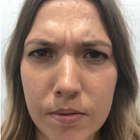
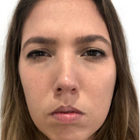
Front view
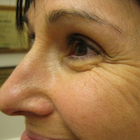
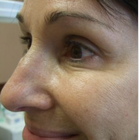
Half-side view
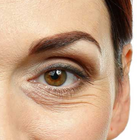
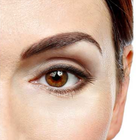
Front view
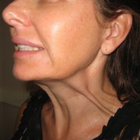
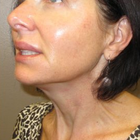
Half-side view
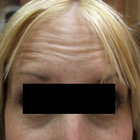
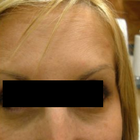
Front view
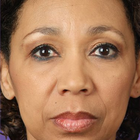
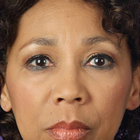
Front view
WHY US?
At Medijump, we're making medical easy. You can search, compare, discuss, and book your medical all in one place. We open the door to the best medical providers worldwide, saving you time and energy along the way, and it's all for FREE, no hidden fees, and no price markups guaranteed. So what are you waiting for?

Free

Best Price

Widest Selection

Risk-Free
What you need to know about Wrinkle Treatment in Cape Town
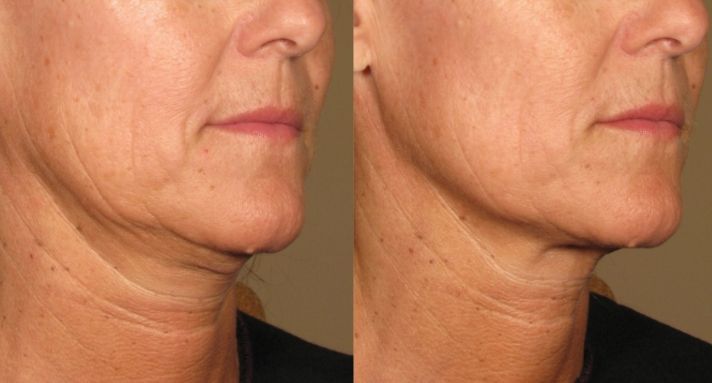
Ultherapy is an FDA-approved non-invasive skin tightening treatment. Known as the non-surgical alternative to facelift surgery, Ultherapy uses a focused ultrasound beam to boost collagen production in the deeper layers of your skin. Collagen is a natural protein that comes in numerous different types. It gives firmness and tightness to your skin. As we grow old, collagen loses its strength and firmness and shows laxity. This procedure gives collagen its strength back.
While a facelift offers more obvious results, it leaves scars and has other associated risks such as nerve damage and clot formation. Ultherapy, on the other hand, requires plenty of time to make its effects visible. Also, more sessions are needed to maintain its effects. It strengthens the loose skin of your face and neck and nullifies the effects of ageing on your face. It has the advantage that there is no downtime for it. You can apply makeup immediately after the procedure. This procedure needs to be repeated every six months or a year.
Ultherapy tightens and strengthens your loose skin without giving incisions and stitches. Instead, a focused ultrasound beam is used to lift your skin. Before going through the therapy, you have a lower eyebrow line, droopy lower eyelid, flat saggy cheeks, and loose skin of the neck. After Ultherapy, your skin looks glowing and rejuvenated, cheeks look healthy and plumped, and eyelids look lifted.
What does a Wrinkle Treatment Procedure Involve?
The procedure begins with cleaning your skin with an alcohol swab to kill any germs present at the spot. A specialized gel is applied to your skin. The focused ultrasound beam is used to produce thermal effects in the deeper layers of skin. The device is pressed firmly on to the skin of areas that needs strengthening. This induces new collagen production in these layers and gives firmness to the previous one. Ultrasound rays are applied over the areas where skin tightening is intended, such as the face and the neck. The time of procedure varies with the areas which are to be treated. It produces thermal effects which can be the cause of discomfort during the process. It lasts for a small period of time when the energy is being delivered into skin layers. This slight discomfort is a sign that the collagen-boosting process has been started.
How Long Should I Stay in Cape Town for a Wrinkle Treatment Procedure?
Ultherapy takes 1 to 1.5 hours or more depending upon the dimensions of the area which is being treated. Since it is an outpatient procedure, you can leave for home on the same day of the treatment. However, you should plan to stay in Cape Town for at least 5 days after your procedure. This will allow for the initial recovery and follow-up check-ups. Slight swelling and discomfort are normal during your stay. However, if it aggravates, there might be something wrong. Your health conditions are monitored during this duration.
What's the Recovery Time for Wrinkle Treatment Procedures in Cape Town?
As there is no downtime, you need not take any day off from work. You can get back to work immediately after the therapy. Minimal bruising is reported at the sites of Ultherapy where bones are present. This discomfort is for a small period of time. There might be tenderness and swelling in your skin which can last for one month after the procedure. 3 to 6 months are required for the results to become evident. Keep in mind that everyone continues to age and no process or treatment can stop aging. Therefore, the effects of Ultherapy subsides after a few years. Touch up treatments help to maintain its effects.
What sort of Aftercare is Required for Wrinkle Treatment Procedures in Cape Town?
After going through Ultherapy, take care of the following points to look after you:
- Avoid contact with direct sunlight for 2 to 3 months after this therapy. At the first place do not go outside in day time. If it is necessary, wear a strong sunscreen to protect your skin from harmful rays of light.
- Do not apply any product on your skin which can cause allergy or irritation.
- Use icepacks to ease you from itching and swelling. They are very effective in reducing redness.
- Do not massage and rub your skin for at least 1 to 2 weeks. It can aggravate redness and irritation in your skin.
- Cover yourself properly when going out after the procedure.
- Moisturize your skin twice or thrice a day. Use a moisturizer prescribed by your doctor.
What's the Success Rate of Wrinkle Treatment Procedures in Cape Town?
This therapy is almost always successful. Results vary and their time of appearance varies. Some people show more positive results while others show a moderate difference in their physical appearance. But it works on all. According to a study, 65% of the patients reported improvement in their skin quality after 2 to 8 months. While 67% seemed very satisfied with the results after only 3 months. The success of Ultherapy depends upon your genes and other factors too.
Are there Alternatives to Wrinkle Treatment Procedures in Cape Town?
The following are some alternatives to Ultherapy:
- Microcurrent facelift: this involves electrical stimulation of your tissues, skin, and muscles to increase their tone and impart a rejuvenating effect. Also, electrical current boosts collagen production and increases blood circulation in your body. It shows immediate results which can last for 48 hours only. You can opt for it for special events.
- Dermal fillers: also known as a liquid facelift, dermal fillers such as Sculptra, Juvederm, and Restylane are injected into your skin to give your facial features a lift. It treats wrinkles and aging lines on your skin. Each dermal filler works differently in different parts of your body.
- Laser facelift: laser light is used to stimulate inner layers of your skin to boost collagen production. This requires 30 minutes with no downtime.
All the techniques mentioned above are minimally invasive with almost no downtime, pain and incisions.
Overall, you will look younger than your actual age. But its effects last for only 12 to 15 months, after which you will need touch ups.
Whilst the information presented here has been accurately sourced and verified by a medical professional for its accuracy, it is still advised to consult with your doctor before pursuing a medical treatment at one of the listed medical providers
No Time?
Tell us what you're looking for and we'll reachout to the top clinics all at once
Enquire Now

Popular Procedures in Cape Town
Prices Start From $111

Prices Start From $16

Prices Start From $28

Prices Start From $5

Recommended Medical Centers in Cape Town for Wrinkle Treatment

- Interpreter services
- Translation service
- Religious facilities
- Medical records transfer
- Medical travel insurance
- Health insurance coordination
- TV in the room
- Safe in the room
- Phone in the room
- Private rooms for patients available

- Interpreter services
- Translation service
- Religious facilities
- Medical records transfer
- Medical travel insurance
- Health insurance coordination
- TV in the room
- Safe in the room
- Phone in the room
- Private rooms for patients available

- Interpreter services
- Translation service
- Religious facilities
- Medical records transfer
- Medical travel insurance
- Health insurance coordination
- TV in the room
- Safe in the room
- Phone in the room
- Private rooms for patients available

- Interpreter services
- Translation service
- Religious facilities
- Medical records transfer
- Medical travel insurance
- Health insurance coordination
- TV in the room
- Safe in the room
- Phone in the room
- Private rooms for patients available

- Interpreter services
- Translation service
- Religious facilities
- Medical records transfer
- Medical travel insurance
- Health insurance coordination
- TV in the room
- Safe in the room
- Phone in the room
- Private rooms for patients available

- Interpreter services
- Translation service
- Religious facilities
- Medical records transfer
- Medical travel insurance
- Health insurance coordination
- TV in the room
- Safe in the room
- Phone in the room
- Private rooms for patients available

- Interpreter services
- Translation service
- Religious facilities
- Medical records transfer
- Medical travel insurance
- Health insurance coordination
- TV in the room
- Safe in the room
- Phone in the room
- Private rooms for patients available

- Interpreter services
- Translation service
- Religious facilities
- Medical records transfer
- Medical travel insurance
- Health insurance coordination
- TV in the room
- Safe in the room
- Phone in the room
- Private rooms for patients available

- Interpreter services
- Translation service
- Religious facilities
- Medical records transfer
- Medical travel insurance
- Health insurance coordination
- TV in the room
- Safe in the room
- Phone in the room
- Private rooms for patients available

- Interpreter services
- Translation service
- Religious facilities
- Medical records transfer
- Medical travel insurance
- Health insurance coordination
- TV in the room
- Safe in the room
- Phone in the room
- Private rooms for patients available
Wrinkle Treatment in and around Cape Town
About Cape Town
Cape Town is the legislative capital of South Africa and is also known as the Mother City. It is the oldest city in the country and home to the Parliament of South Africa and is a major destination for immigrants and expatriates, making it one of the most multicultural cities in the world. Located on the shore of Table Bay, the city is known for its harbor, natural setting, as well as famous attractions and many tourists, visit to enjoy Table Mountain and Cape Point.
Recently, tourists also come to the city for its medical tourism. Many groundbreaking procedures and medical research in South Africa, such as the world’s first penile transplant, have put Cape Town under the radar of medical tourists from all around the globe. Thanks to its world-class healthcare and world-renowned medical practitioners, more and more people now prefer Cape Town as their medical destination. The healthcare in the city is among the best on the African continent. Other reasons such as shorter waiting times for surgeries, state-of-the-art equipment, and affordable healthcare compared to Europe and the United States, and English-speaking doctors.
Popular Areas in Cape Town
Cape Town is a natural beauty that offers a wide range of things to do and see. From culture, food, art, to nature. Listed below are some of the more popular places in the city:
- Table Mountain is one of the New 7 Wonders of Nature and it is easy to see why. The iconic mountain makes an amazing backdrop to Cape Town. The level plateau is about 3 kilometers from side to side with remarkable cliffs on the edges. The peak offers an amazing view of the city. Tourists can choose to board the cable car or discover its beautiful nature by hiking.
- Cape of Good Hope is situated within the Table Mountain National Park. The area has a mix of bio-diversity and wonderful beauty that attracts thousands of tourists to visit. There are around 250 species of birds spotted in the area. Hiking and cycling through it is the best way to discover its true majesty. Tourists can picnic and birdwatch in isolated beaches.
- Kirstenbosch National Botanical Garden is one of the most incredible botanic gardens in the world. Nestled at the eastern foot of Table Mountain, it features a natural forest and fynbos flora and sprawls around 528 hectares. The garden displays a collection of diverse South African plants with seasonal festivals such as musical sunset concerts during summer and craft markets on the last Sunday of every month.
- Groot Constantia is the oldest wine-producing estate in South Africa, located in the suburb of Constantia. The estate consists of a museum, restaurants, tasting room, and cellars. The museum was built in Cape Dutch architecture style, further into the estate; tourists will find the free orientation center which provides an overview of Groot Constantia history. Tourists can also tour the original wine cellar, have a wine tasting, or a wine and chocolate pairing.
- Boulders Penguin Colony is located in Boulder Beach on the outskirts of Simon’s Town. The beach boasts fine white sand with pristine waters and endangered African penguin colonies. Tourists can set up camp, see the penguins up close, and even swim along with the magnificent aquatic birds. Observing the penguins socializing and playing in the waves is a perfect way to enjoy your travel in Cape Town.
Weather and Climate in Cape Town
Cape Town enjoys a warm Mediterranean climate. The summer is dry and warm, lasting from early December to March. The average maximum temperature during this season is around 26 °C, and the minimum is 16 °C. The Berg Wind that arrives from February to early March can make the city uncomfortably hot for a couple of weeks.
The winter starts in June and ends in August and the season is characterized by mild and wet weather. The city also experiences strong north-westerly winds during this season. The average temperature ranges between 8.5 °C at the lowest and 18 °C at the highest.
Getting Around in Cape Town
The primary airport that serves Cape Town is the Cape Town International Airport and it is the second busiest airport in South Africa and the fifth busiest in Africa. The airport serves direct domestic flights to major cities and several small centers in the country. It also connects the country with major cities in Africa, Europe, the Middle East, and Asia. It is the hub for South African Express as well as budget airlines such as Mango and FlySafair.
There are several types of taxis: the metered taxis, Rikkis Taxis, and minibus taxis. The metered taxis can be a little expensive but are usually comfortable. Tourists can order one via a phone call or from one of the city’s official taxi stands. Tourists should always choose reputable taxi companies such as Marine Taxi, Unicab, Excite, and SA Cab.
Rikkis Taxis are painted yellow and very popular and these taxis run on a fixed fare rather than metered, so they are a little more affordable than metered taxis and a good option if you are traveling on longer journeys. Other than the Rikkis Taxis, tourists can choose the minibus taxis which are perfect for adventurous foreign travelers. The minibus taxis can be found practically everywhere and are very cheap, however, you will need to know exactly where your destination is and tell the driver when to stop. Another travel option is the MyCiTi bus, a modernized and effective bus system.
Tourist Visas in Cape Town
There are more than 60 countries listed in the visa exemption agreements, which means the citizens of these countries can stay in South Africa for up to 90 days. Other countries not listed must obtain a valid visa to enter the country. A Medical Treatment Visa is available for medical tourists. Note that all visitors must hold a passport valid for at least 30 days after the expiration of their intended visit.
Additional Information
- Local Currency: South African Rand (ZAR) is the official currency and 1 USD converts to 14 ZAR.
- Money & Payments: Tourists can find ATMs almost everywhere around the city, but you should avoid ATMs in secluded places, especially at night. Credit cards are accepted in established restaurants, hotels, and shops. It is always better to carry some cash because smaller food places are cash-only. Tipping is expected here.
- Local Language: The most common languages in the city are English, Afrikaans, and Xhosa with Afrikaans as the most widely spoken home language.
- Local Culture and Religion: The population follows Christianity, Islam, Judaism, and several other religions.
- Public Holidays: There are 12 official public holidays in Cape Town, including New Year’s Day, Freedom Day, and Christmas.
Popular Searches
- Plastic Surgery in Thailand
- Dental Implants in Thailand
- Hair Transplant in Thailand
- Breast Augmentation Thailand
- Gastric Sleeve in Thailand
- Gender Reassignment Surgery in Thailand
- Laser Hair Removal in Bangkok
- Botox in Bangkok
- Dermatology in Bangkok
- Breast Augmentation in Bangkok
- Coolsculpting in Bangkok
- Veneers in Turkey
- Hair Transplant in Turkey
- Rhinoplasty in Turkey
- Stem Cell Therapy in Mexico
- Rhinoplasty in Mexico
- Liposuction in Mexico
- Coolsculpting in Tijuana
- Rhinoplasty in Korea
- Scar Removal in Korea
- Gastric Sleeve in Turkey
- Bone Marrow Transplant in India
- Invisalign in Malaysia
- Plastic Surgery in the Dominican Republic
- Tummy Tuck in the Dominican Republic
- Plastic and Cosmetic Surgery in Poland
- Rhinoplasty in Poland
- Hair Implant in Poland
- Dental Implants in Poland
- IVF in Turkey


